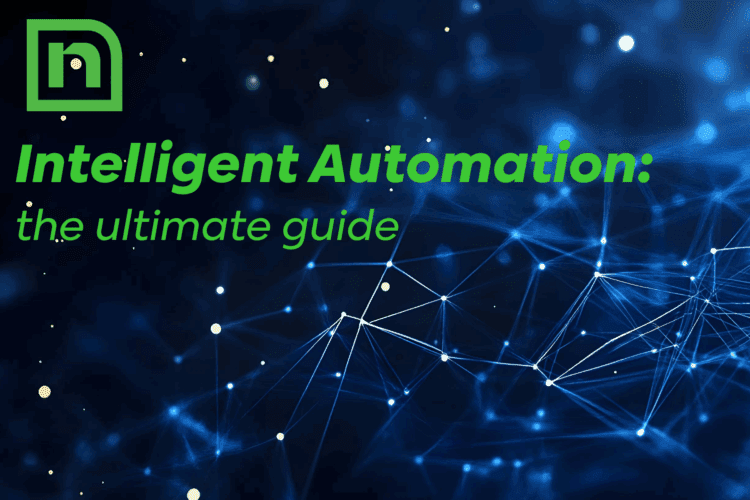At face value, the idea of keeping your data close (within company walls) is more comforting than entrusting it to a cloud provider off-premises. However, this is a common misconception cited as a top cloud myth by McKinsey Digital. The reality is the physical location of your data matters far less than who can access and control it. These factors are difficult to control in traditional IT environments.
As data use is growing exponentially, keeping secure tabs of on-premise data is less realistic and safe. Most organizations lack the resources to sufficiently protect their data by themselves, leaving them vulnerable to devastating security threats.
Cloud service providers, on the other hand, like the Hyland cloud, have the expertise, focus, and resources to offer optimal data and solution protection. As a result, organizations that partner with cloud providers gain magnificent security benefits that are out of reach for those still running the show themselves. Having a perfect record of your cloud data protection can protect against an endless stream of threats for many months and years, and even save your company billions of dollars.
5 Reasons Why the Cloud Is More Secure Than On-Premises
1. Cyber Security Expertise
Your IT department is highly skilled at what they do. But they juggle many responsibilities and cannot solely focus on security. That’s where a cloud vendor comes in. Cloud providers employ entire teams of experts dedicated to monitoring cloud infrastructure 24/7.
On top of the current IT skill shortage, organizations are grappling with a cloud expertise shortage as well, leaving many with no choice but to rely on employees without sufficient cloud expertise. This can result in major security issues when employees without critical expertise try to deploy assets into the cloud using the same protocol they would use in a traditional datacenter. Cloud providers, however, can invest in early recruitment, training and retraining, and retention of the best security professionals despite the hyper-competitive market.
It’s a win-win situation:
- Your organization acquires top talent without the chase.
- Security professionals get and training to gain high-demand skills.
Cloud providers also have the resources to invest billions in security innovation, ensuring their practices and technology are as current as possible.
2. Strong Physical Security
Legacy systems originated in a time when computer crimes were far less prevalent and complex. They’re no match for complex threats like hackers with the latest equipment. Plus, legacy system security measures can be challenging to implement and are unreliable.
Data centers, on the other hand, run a tight ship. The top data centers feature multi-layered security defenses with strong precautions like high fences with barbed wire, concrete walls, cameras, and even around-the-clock support and security guards. Cloud service providers also have several geographically dispersed data centers, adding additional security for your data and solution itself. Most organizations lack the resources to achieve this level of physical security independently, but with a cloud provider, you get it all.
The cloud is also excellent for controlling user access to sensitive data. For example, when your data lives off-site, your employees, vendors, and customers are physically separated from it. As a result, it is more difficult for these users and third parties to access your data, decreasing the risk of data theft and other dangerous outcomes.
3. Resilience to Security Threats
The key to being resilient to security threats is a tiered defense approach. Although traditional networks can have tiered defenses, they can be inconsistent and varied based on the network’s age and geography.
However, the cloud uses far more pervasive and sophisticated instrumentation that constantly detects and responds to threats. Plus, cloud architectures are homogeneous, which reliably enables the uniform application of tiered defenses and continuous monitoring and logging.
4. Consistent Auditing and Compliance Assurance
Cloud service providers must comply with regulatory frameworks, mandates, and laws of their respective countries of operation. Cloud service providers also face mandatory annual audits that carefully protect against security system flaws and errors. This perk is significant because on-premise legacy systems lack this requirement, so it often isn’t completed. For example, the Hyland Cloud’s data centers and cloud management services are regularly audited and certified by an independent party for optimal security standards.
5. Easier Cloud Security Architecture Updates
For organizations still hosting on-premises, security architecture changes are incredibly complex and difficult, be it changing vendors or types of tools. To avoid the high risk of disruption to operations often involved, organizations compromise by adding even more new tools to a chain of security products.
But with the cloud, new security capabilities are woven into the broader security architecture and cloud administration constructs. This feature allows customers to try out new capabilities seamlessly in their IT environments to assess their effectiveness. Additionally, cloud security architects can take full advantage of the latest advancements to maintain a security design that operates with optimal efficiency and strength.
With the level of devastation a security breach can inflict on a company’s reputation, revenue, and productivity, organizations cannot overlook the urgent value of cloud’s security capabilities. Going solo with your data security is no longer an option. But partnering with a cloud service provider can take the burden off you and your IT team for far greater results.






